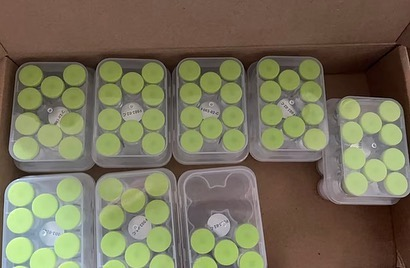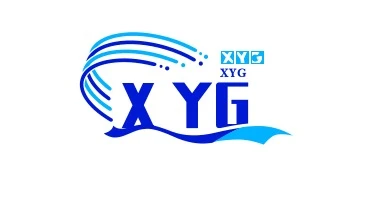
News
Jun . 18, 2024 00:59 Back to list
IGF-1 is similar to HGH in its effects on muscle growth.
Human Growth Hormone (HGH), also known as somatotropin, is a peptide hormone that plays a pivotal role in human development and growth. It is secreted by the anterior pituitary gland, a small endocrine gland located at the base of the brain. HGH is a complex molecule that comprises 191 amino acids, and its production and release are regulated by various factors, including sleep, exercise, and nutritional status.
The primary function of HGH is to stimulate growth in children and adolescents. It promotes cell reproduction and regeneration, leading to an increase in muscle mass, bone density, and overall body size. In addition, it aids in regulating metabolism, influencing how the body utilizes fats, proteins, and carbohydrates. HGH also enhances the immune system's functionality, contributing to overall health and wellbeing.
During childhood and adolescence, HGH deficiency can result in stunted growth, while excess HGH secretion can lead to a condition called gigantism. In adults, HGH deficiency can cause symptoms like reduced muscle mass, increased body fat, and decreased bone density, often associated with aging. However, the role of HGH in anti-aging therapies is controversial, as its supplementation can have potential side effects and is strictly regulated.
HGH therapy has been used medicinally to treat specific conditions such as growth hormone deficiency, Turner syndrome, Prader-Willi syndrome, and short stature due to chronic kidney disease
HGH therapy has been used medicinally to treat specific conditions such as growth hormone deficiency, Turner syndrome, Prader-Willi syndrome, and short stature due to chronic kidney disease HGH therapy has been used medicinally to treat specific conditions such as growth hormone deficiency, Turner syndrome, Prader-Willi syndrome, and short stature due to chronic kidney disease
HGH therapy has been used medicinally to treat specific conditions such as growth hormone deficiency, Turner syndrome, Prader-Willi syndrome, and short stature due to chronic kidney disease
HGH therapy has been used medicinally to treat specific conditions such as growth hormone deficiency, Turner syndrome, Prader-Willi syndrome, and short stature due to chronic kidney disease
HGH therapy has been used medicinally to treat specific conditions such as growth hormone deficiency, Turner syndrome, Prader-Willi syndrome, and short stature due to chronic kidney disease hgh. It is administered under close medical supervision to ensure safety and effectiveness. Synthetic HGH, known as recombinant human growth hormone (rHGH), was developed in the 1980s and has revolutionized the treatment of these disorders.
Despite its therapeutic benefits, the use of HGH outside of medical indications, particularly in sports and as an anti-aging supplement, is contentious. The World Anti-Doping Agency (WADA) has listed HGH as a prohibited substance due to its potential to enhance athletic performance. Illicit use of HGH can lead to serious health issues, including diabetes, joint pain, and an increased risk of cancer.
In conclusion, Human Growth Hormone is a powerful biological agent that significantly impacts our growth, metabolism, and overall health. Its proper functioning is crucial for normal development, and its therapeutic applications have transformed the lives of many patients. However, the misuse or unregulated use of HGH can pose significant health risks, highlighting the importance of balanced understanding and responsible management of this hormone.
hgh. It is administered under close medical supervision to ensure safety and effectiveness. Synthetic HGH, known as recombinant human growth hormone (rHGH), was developed in the 1980s and has revolutionized the treatment of these disorders.
Despite its therapeutic benefits, the use of HGH outside of medical indications, particularly in sports and as an anti-aging supplement, is contentious. The World Anti-Doping Agency (WADA) has listed HGH as a prohibited substance due to its potential to enhance athletic performance. Illicit use of HGH can lead to serious health issues, including diabetes, joint pain, and an increased risk of cancer.
In conclusion, Human Growth Hormone is a powerful biological agent that significantly impacts our growth, metabolism, and overall health. Its proper functioning is crucial for normal development, and its therapeutic applications have transformed the lives of many patients. However, the misuse or unregulated use of HGH can pose significant health risks, highlighting the importance of balanced understanding and responsible management of this hormone.
 HGH therapy has been used medicinally to treat specific conditions such as growth hormone deficiency, Turner syndrome, Prader-Willi syndrome, and short stature due to chronic kidney disease
HGH therapy has been used medicinally to treat specific conditions such as growth hormone deficiency, Turner syndrome, Prader-Willi syndrome, and short stature due to chronic kidney disease
HGH therapy has been used medicinally to treat specific conditions such as growth hormone deficiency, Turner syndrome, Prader-Willi syndrome, and short stature due to chronic kidney disease
HGH therapy has been used medicinally to treat specific conditions such as growth hormone deficiency, Turner syndrome, Prader-Willi syndrome, and short stature due to chronic kidney disease hgh. It is administered under close medical supervision to ensure safety and effectiveness. Synthetic HGH, known as recombinant human growth hormone (rHGH), was developed in the 1980s and has revolutionized the treatment of these disorders.
Despite its therapeutic benefits, the use of HGH outside of medical indications, particularly in sports and as an anti-aging supplement, is contentious. The World Anti-Doping Agency (WADA) has listed HGH as a prohibited substance due to its potential to enhance athletic performance. Illicit use of HGH can lead to serious health issues, including diabetes, joint pain, and an increased risk of cancer.
In conclusion, Human Growth Hormone is a powerful biological agent that significantly impacts our growth, metabolism, and overall health. Its proper functioning is crucial for normal development, and its therapeutic applications have transformed the lives of many patients. However, the misuse or unregulated use of HGH can pose significant health risks, highlighting the importance of balanced understanding and responsible management of this hormone.
hgh. It is administered under close medical supervision to ensure safety and effectiveness. Synthetic HGH, known as recombinant human growth hormone (rHGH), was developed in the 1980s and has revolutionized the treatment of these disorders.
Despite its therapeutic benefits, the use of HGH outside of medical indications, particularly in sports and as an anti-aging supplement, is contentious. The World Anti-Doping Agency (WADA) has listed HGH as a prohibited substance due to its potential to enhance athletic performance. Illicit use of HGH can lead to serious health issues, including diabetes, joint pain, and an increased risk of cancer.
In conclusion, Human Growth Hormone is a powerful biological agent that significantly impacts our growth, metabolism, and overall health. Its proper functioning is crucial for normal development, and its therapeutic applications have transformed the lives of many patients. However, the misuse or unregulated use of HGH can pose significant health risks, highlighting the importance of balanced understanding and responsible management of this hormone. Share
Latest news
-
Using tadalafil to promote hair growth and combat hair loss effectively.
NewsJul.10,2024
-
Generating a title similar to palmitoyl oligopeptide could be Oligopeptide containing palmitoyl for skincare benefits and rejuvenation.
NewsJul.10,2024
-
Similarity of the compound tra% 100mg/ml in different pharmaceutical formulations
NewsJul.10,2024
-
Negative impacts of tadalafil on health and well-being
NewsJul.10,2024
-
Anastrozole 0.5 mg twice per week for treatment of cancer patients
NewsJul.10,2024
-
Reviewing the effectiveness of kisspeptin in enhancing reproductive health and fertility.
NewsJul.10,2024
